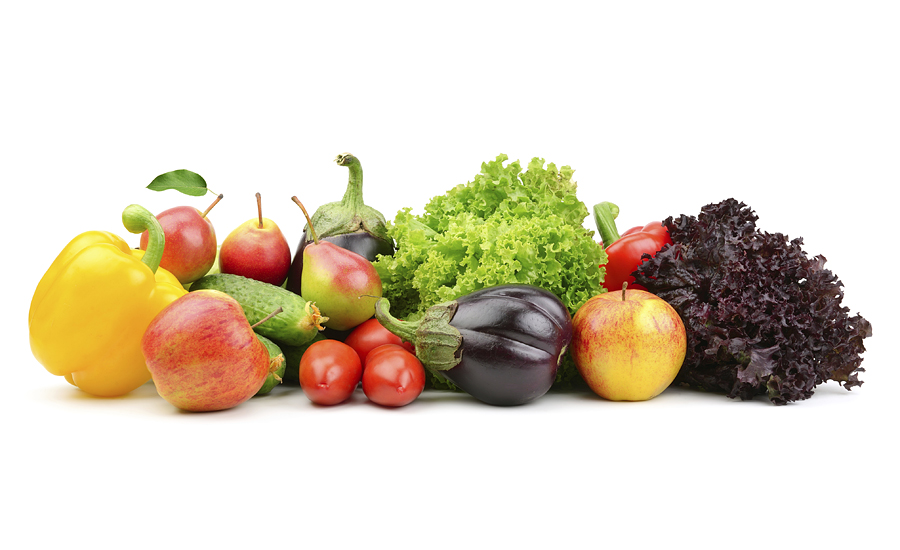Despite hearing about the health and wellness benefits of fruits and vegetables for decades, nearly nine in 10 Americans still don’t eat enough each day. And, science continues to show that boosting consumption of these plant powerhouses can promote healthier, happier lives.
That’s why the Produce for Better Health Foundation (PBH), Brentwood, Mo., revealed its new Have A Plant consumer movement, which replaces the Fruits & Veggies—More Matters public education program, as a transformational approach to shifting fruit and vegetable behaviors, particularly among Millennials and Gen Z. Rooted in behavioral science and extensive consumer research, Have A Plant answers consumers’ call for a simple, straightforward dialogue that speaks to their emotional food drivers and gets to the root of what all fruits and vegetables are – plants.
“If we want Americans to eat more fruits and vegetables, we need to engage them in relevant ways that align with how they are living in today’s rapidly changing, digital world. This is particularly true with Millennial and Gen Z consumers, our target audience, which collectively, represent the largest demographic group in the United States,” says Wendy Reinhardt Kapsak, president and CEO. “That’s why Have A Plant rallies around putting an end to prescriptive recommendations to eat a certain amount of fruits and vegetables each day, and instead, fires consumers up with actionable, realistic and fun steps to connect eating fruits and vegetables with feeling happier and healthier. And, with more people trying to enjoy plant-packed meals more often, Have A Plant reminds them that all fruits and vegetables are delicious, nutrient-rich plants.”
PBH initiated an extensive behavioral science and consumer data analysis effort to identify effective strategies that could help motivate Americans to meet daily recommendations for fruits and vegetables and reverse lack-luster consumption trends. This multi-faceted research effort included individual consumer food journeys and video diaries as well as message testing with hundreds of consumers; analysis of 1.2 million social posts; engagements and interviews with hundreds of influencers and produce industry stakeholders; and a deep-dive assessment of over 100 consumer behavior studies.
The findings are as follows:
- Behavioral research suggests that content targeting Millennials and Gen Z can be most effective when it shifts from a “knowledge-based” story of facts and figures to more powerful, yet straightforward ideas and actions based in “feeling” and “doing.”
- Consumers are motivated by the immediate emotional satisfaction of eating fruits and vegetables, more so than longer term physical benefits. People report feeling happier and a greater sense of overall satisfaction in life when they eat these plant foods more often, which can often be more motivating as a driver than an emphasis on disease-risk reduction.
- Millennials and Gen Z categorize fruits and vegetables very differently, and they want resources that speak to this differentiation. For many, fruit means sweet and happiness, while vegetables convey savory and smart, for example.
- Social content analytics identified a current of advocacy naturally flows within digitally connected Millennials and Gen Z, which can offer a compelling opportunity for the produce promoters to tap into to boost fruit and vegetable consumption.
PBH also unveiled a comprehensive, consumer-driven suite of resources to support the produce industry. Key components of the transformation include:
-
Comprehensive digital ecosystem and integrated content strategy:
- Tech-savvy Millennial and Gen Z consumers crave food inspiration through various digital channels, so PBH is launching a highly interactive website. The new site is highly intuitive to fruit and vegetable information-gathering consumers and also contains numerous resources for industry members and influencers, featuring nearly 3,000 pages of content, more than 450 recipes, nearly 100 third-party contributors and almost 20 new series of articles. More than 40 additional series of articles will be unveiled later this year.
- With more than 1 million followers on Facebook alone, PBH recognizes the power of digital and social media with Millennials and Gen Z. PBH also refreshed its e-newsletters and social channels with improved content and images to answer consumers’ call for relevant information that makes shopping for, preparing and eating fruits and vegetables easier and more enjoyable.
-
Expanded and elite influencer network:
Millennials and Gen Z are inspired by individuals, including health and wellness professionals and beyond. That’s why PBH created a new, elite network of 16 Fruit & Vegetable Ambassadors in Action, comprised of registered dietitians, chefs, sports nutrition and fitness gurus and lifestyle experts, to offer actionable, no-nonsense advice. In addition, PBH is working with its members on a key opinion leader outreach strategy to increase the prominence of fruits and vegetables in the broader food dialogue, complementing its consumer-facing efforts.
-
Enhanced research and thought leadership platforms:
PBH will continue to support food, nutrition and behavioral research as well as consumer insights and education to better understand the health, well-being, cultural and lifestyle benefits of fruits and vegetables. The organization will also elevate existing efforts to convene critical value chain stakeholders, health and wellness professionals and thought leaders to identify and collectively activate against solutions to increase Americans’ fruit and vegetable consumption as part of the Have A Plant movement.
“The Produce for Better Health Foundation dares to inspire change and collaboration as well as push boundaries within the produce industry and beyond, to bring fruits and vegetables to the center of the plate when it comes to the plant-centric dialogue,” says Reinhardt Kapsak. “Our direct line to information-seeking influencers and consumers as well as our insights into their habits and desires drove us to create a lasting, behavioral science-backed movement, which will allow us to authentically and credibly advocate for healthier, happier lives by enjoying all types of fruits and vegetables every single day.”







